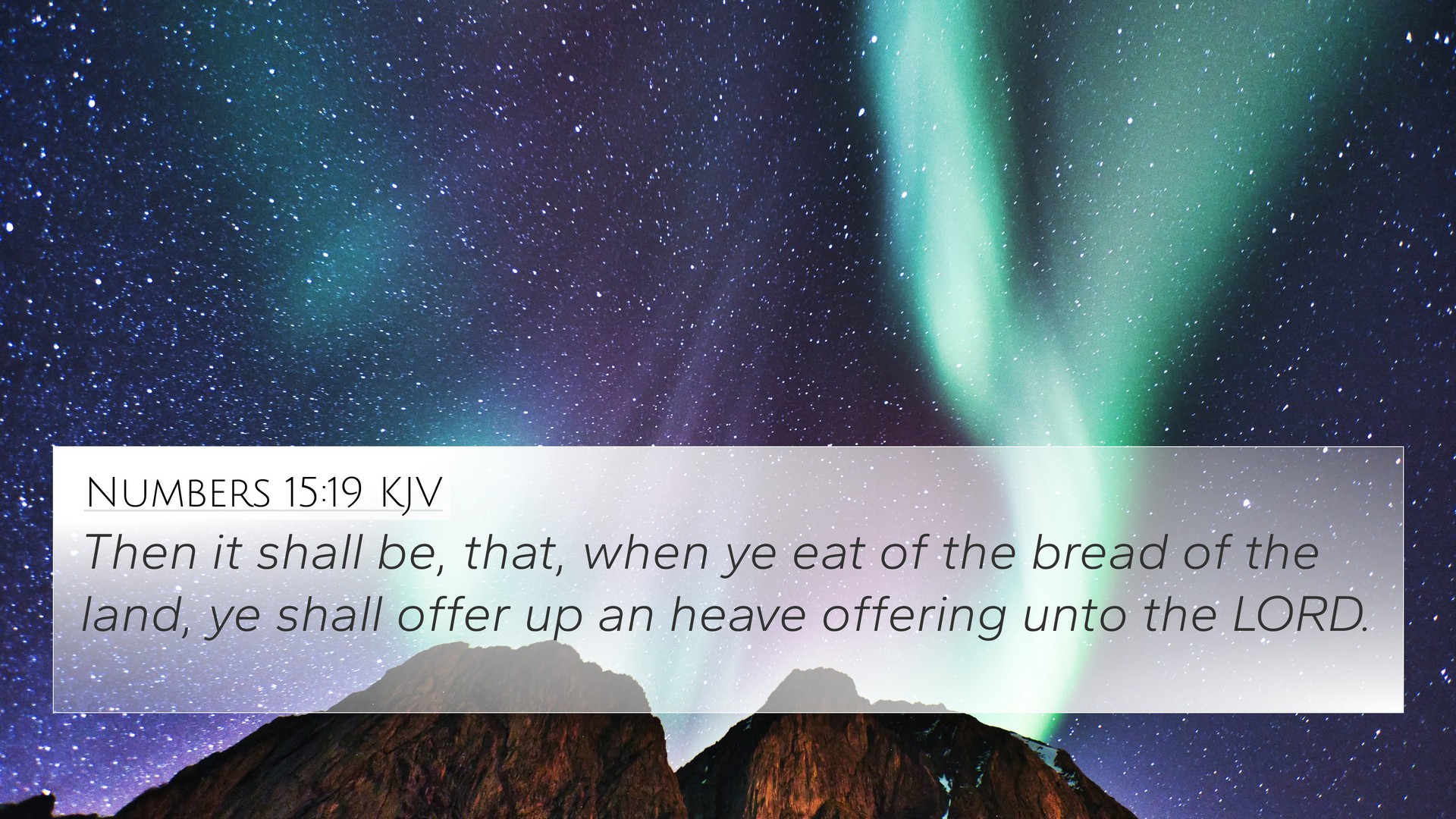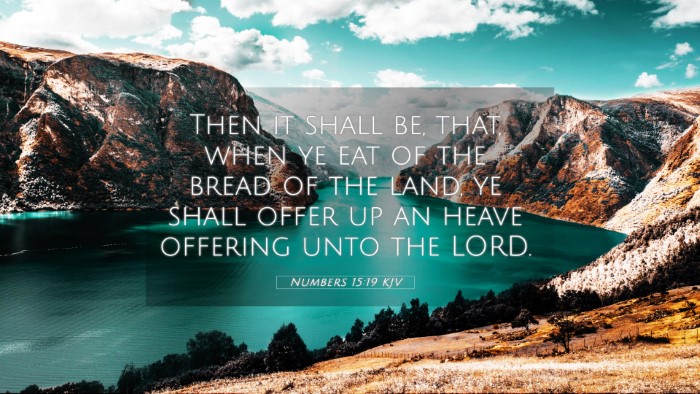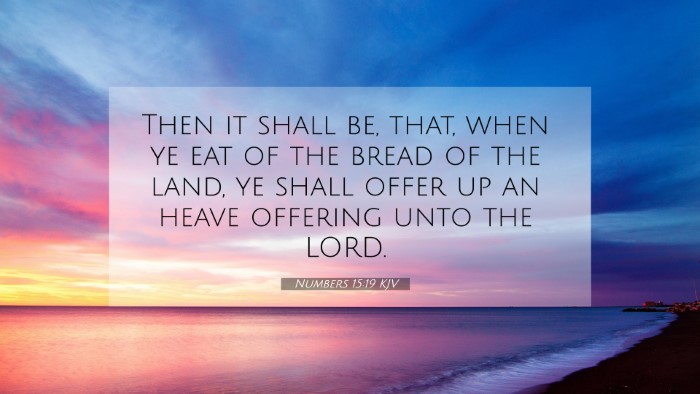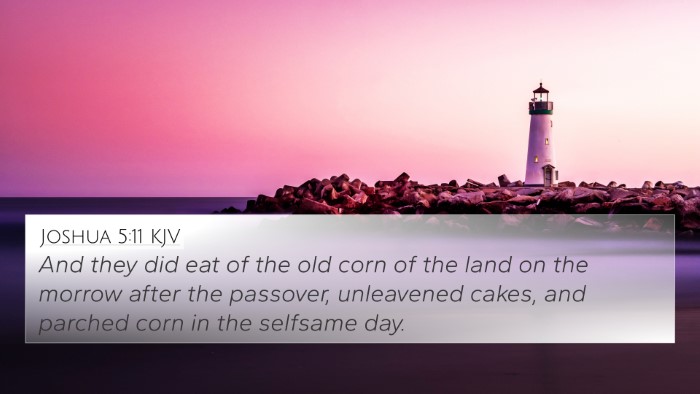Understanding Numbers 15:19
Numbers 15:19 states: "Then it shall be, when you eat of the bread of the land, you shall offer up a heave offering to the Lord." This verse emphasizes the importance of gratitude and acknowledgment of God's provision through offerings, particularly in the context of the land promised to Israel.
Key Themes and Insights
- Gratitude for Provision: The offering represents a recognition of God's blessings in providing sustenance.
- Covenantal Relationship: The act of offering connects to the covenant between God and Israel, reinforcing their identity as His chosen people.
- Community Responsibility: It encourages the community to collectively acknowledge God's generosity and share in worship.
- Symbolism of Bread: Bread signifies sustenance and life, illustrating the dependency on God for both physical and spiritual nourishment.
Commentary Insights
Albert Barnes comments that this verse signifies not only a command to offer but the necessity to maintain a continuous connection with God. He draws parallels to the principle that all blessings come from God, underscoring the importance of giving back a portion as acknowledgment of His grace.
Matthew Henry highlights the significance of setting apart a portion of our resources to the Lord, as it cultivates a spirit of gratitude and reliance. This offering is tied to the wider context of worship and community celebration of God's covenant.
Adam Clarke elaborates on the type of offerings mentioned, noting their importance in Israel’s worship and dedication to God. He links this to the overarching sacrificial system instituted among the Israelites as a means to express devotion and commitment to Yahweh.
Bible Verse Cross-References
This verse can be cross-referenced with the following scriptures:
- Leviticus 2:12: Discusses the offerings made from grain, reflecting the idea of giving back to God from His provision.
- Deuteronomy 26:10-11: Ties the act of offering to the joy of sharing in the blessings of the land.
- Psalms 104:14-15: Celebrates God's provision of food from the earth, enriching the theme of thanksgiving.
- Hebrews 13:15: Encourages the offering of praise, highlighting the obligation to honor God with our resources.
- 1 Corinthians 10:31: Calls believers to do everything for the glory of God, which includes recognizing His gifts.
- Matthew 6:33: Reminds us to seek God's kingdom first, associating our material needs with spiritual responsibilities.
- Philippians 4:19: Confirms God’s provision for our needs based on His riches in glory.
- Romans 12:1: Encourages believers to offer their bodies as a living sacrifice, tying back to the concept of giving back to God.
- Malachi 3:10: Illustrates the principle of bringing the whole tithe into the storehouse, a reflection of faithfulness and gratitude.
- Luke 6:38: Teaches about the blessings of giving and the reciprocity from God’s hand.
Conclusion
The command to offer a heave offering in Numbers 15:19 serves as a poignant reminder of the nature of our relationship with God. By understanding this verse within its broader context and through the lens of various commentaries, we can appreciate the themes of gratitude, community responsibility, and the joy of giving back to God. The spiritual implications and connections to other biblical texts provide a deeper understanding of how this scripture interacts with the whole of Scripture in expressing our dependence on God and the importance of thanksgiving.
Applying Cross-Referencing
For those interested in cross-referencing Biblical texts, it's crucial to explore the connections between Bible verses that relate to each other. Tools such as a bible concordance and a bible cross-reference guide can enhance your understanding of these relationships, enriching both personal study and group discussions.
To delve deeper into the themes presented in Numbers 15:19 and its cross-references, consider cross-referencing Bible study methods that highlight the connections between the Old and New Testaments. Such studies can illuminate the continuity and development of God's relationship with humanity as described throughout Scripture.



